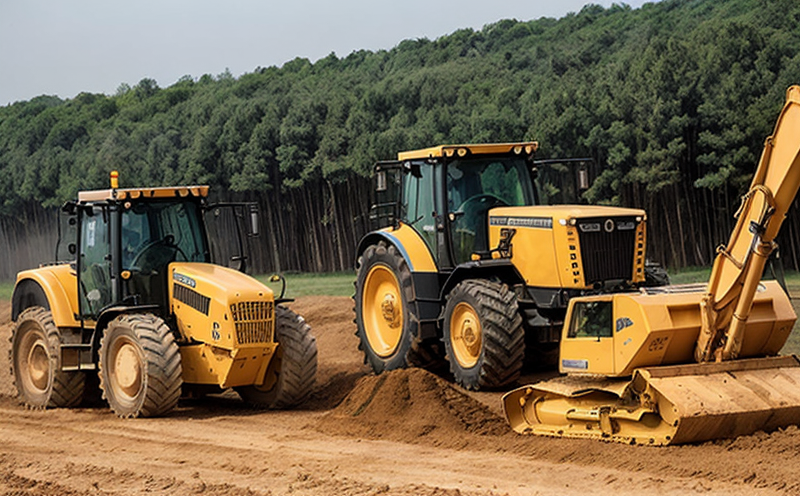Certification for Heavy Machinery and Equipment: Ensuring Operator Safety and Efficiency
The operation of heavy machinery and equipment is a critical aspect of various industries, including construction, mining, agriculture, and manufacturing. These machines are designed to perform complex tasks with precision and speed, but they can also pose significant risks to operators and bystanders if not handled properly. To mitigate these risks, certification programs have been established to ensure that operators are adequately trained and qualified to operate heavy machinery and equipment.
Importance of Certification
Certification for heavy machinery and equipment is essential for several reasons:
Ensures operator safety: Proper training and certification guarantee that operators understand the hazards associated with operating heavy machinery and equipment, as well as the measures to mitigate them.
Enhances efficiency: Certified operators are more proficient in using machines and equipment effectively, leading to improved productivity and reduced downtime.
Complies with regulations: Many countries have laws and regulations requiring operators of heavy machinery and equipment to be certified. Non-compliance can result in fines and penalties.
Reduces liability: Certification provides a level of protection against potential lawsuits resulting from accidents or injuries caused by operator error.
Types of Certifications
There are various types of certifications available for heavy machinery and equipment, including:
Operator certification: This type of certification is specific to the operation of a particular machine or equipment. For example, an excavator operator certification.
Maintenance certification: This type of certification is focused on the maintenance and repair of machines and equipment, ensuring that operators are equipped with the necessary knowledge to perform routine maintenance tasks.
Safety certification: This type of certification emphasizes safety procedures and protocols for operating heavy machinery and equipment.
Certification Process
The certification process typically involves the following steps:
1.
Meet eligibility requirements: Operators must meet certain age, education, and experience requirements to be eligible for certification.
2.
Complete training program: Operators must complete a comprehensive training program that covers theory and practical aspects of operating heavy machinery and equipment.
3.
Pass written examination: Operators must pass a written examination to demonstrate their understanding of the material covered in the training program.
4.
Pass practical assessment: Operators must pass a practical assessment, where they are evaluated on their ability to operate the machine or equipment safely and efficiently.
Common Heavy Machinery and Equipment
Some common heavy machinery and equipment that require certification include:
Excavators: Used for digging trenches, foundations, and other excavation tasks.
Crane: Used for lifting and moving heavy loads.
Bulldozers: Used for grading, clearing, and excavating soil.
Backhoes: Used for digging, loading, and hauling materials.
Certification Requirements by Country
Certification requirements vary by country. Here are some examples:
United States: The OSHA (Occupational Safety and Health Administration) regulates certification for heavy machinery and equipment operators in the United States.
Canada: The CSA (Canadian Standards Association) sets standards for certification of heavy machinery and equipment operators in Canada.
Australia: The RTO (Registered Training Organization) oversees certification programs for heavy machinery and equipment operators in Australia.
Certification Benefits
The benefits of certification for heavy machinery and equipment operators are numerous, including:
Improved safety record: Certified operators are more aware of potential hazards and take necessary precautions to avoid accidents.
Increased productivity: Certified operators are more proficient in using machines and equipment effectively, leading to improved productivity and reduced downtime.
Enhanced career prospects: Certification demonstrates a level of expertise and commitment to the profession, making certified operators more attractive to employers.
Certification Exemptions
In some cases, certification may not be required for certain types of operations or industries. For example:
Small businesses: Smaller companies with limited resources may be exempt from certification requirements.
Low-risk operations: Operations that pose minimal risks to operators and bystanders may not require certification.
Certification Reciprocity
Some countries have reciprocal agreements, allowing certified operators to work in other countries without needing additional certification. For example:
US-Canada reciprocity agreement: Certified operators from the United States can work in Canada without needing additional certification.
Australia-New Zealand agreement: Certified operators from Australia can work in New Zealand without needing additional certification.
Common Certification Providers
Some common providers of heavy machinery and equipment certification include:
OSHA Training Institute (OTI): Offers training programs for heavy machinery and equipment operators in the United States.
CSA Group: Provides certification programs for heavy machinery and equipment operators in Canada.
RTO (Registered Training Organization): Oversees certification programs for heavy machinery and equipment operators in Australia.
Certification Resources
For more information on certification for heavy machinery and equipment, operators can consult the following resources:
OSHA website: Offers information on certification requirements, training programs, and safety guidelines.
CSA Group website: Provides information on certification programs, standards, and best practices.
RTO (Registered Training Organization) website: Offers information on certification programs, courses, and training centers.
Certification FAQs
Here are some frequently asked questions about certification for heavy machinery and equipment:
Q: What is the purpose of certification?
A: Certification ensures that operators are adequately trained and qualified to operate heavy machinery and equipment safely and efficiently.
Q: How long does a certification program typically last?
A: Certification programs can vary in length, but most last several days or weeks.
Q: Do I need to be certified to work on construction sites?
A: Yes, many countries require operators of heavy machinery and equipment to be certified for operation on construction sites.
Q: Can I get certified online?
A: Some certification providers offer online courses and training programs, but hands-on practical assessment is usually required in addition to written exams.
Q: Do I need a certification renewal after completing the initial program?
A: Yes, most certifications require periodic renewal or recertification to ensure operators stay up-to-date with industry developments and best practices.
Q: Can I transfer my certification from one country to another?
A: Some countries have reciprocal agreements allowing certified operators to work in other countries without needing additional certification. However, its essential to verify the specific requirements of each country.

































